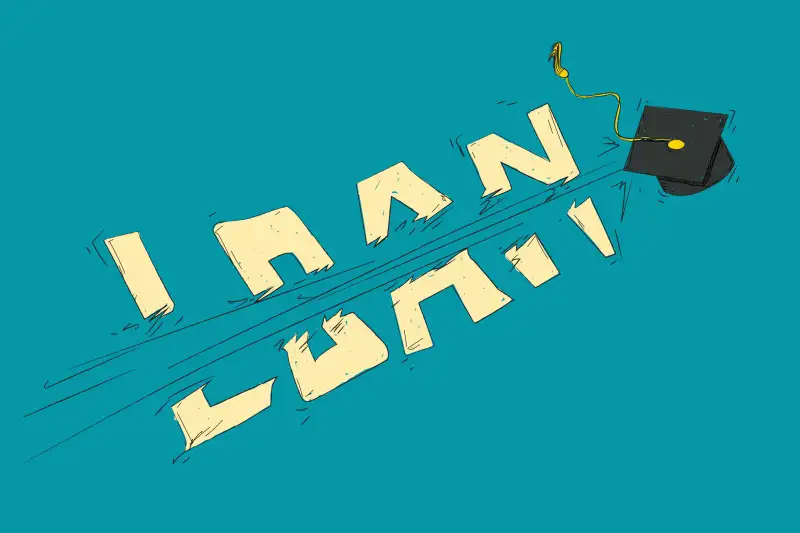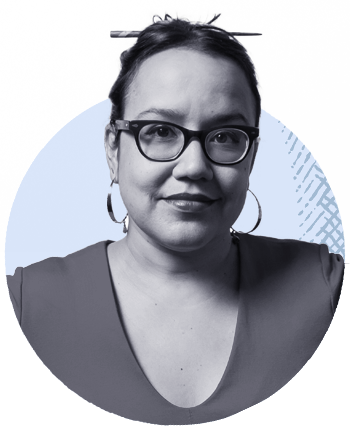How to Pay Off Student Loans Fast

With all the buzz around student loan forgiveness and the recent student loan pause extension, many are wondering if the federal government will keep working on plans to help millions of student loan borrowers. While no one is exactly sure how or when these plans might pan out, it’s a good thing that more attention is on student loan repayment options.
Though there are many schools of thought regarding the best way to pay down debt quickly, much of what works for knocking out other debts could also work for student loan debt. There are a few nuances with student loans, but it’s nothing you can’t overcome with some creativity and intention. Here are 9 tips on paying off your student loans quickly.
Table of contents
- 9 Ways to Pay Off Student Loans Early
- How do You Check My Student Loan Balance?
- Should You Pay off Your Student Loans Early?
- Paying Off Student Loans Fast Summary
9 ways to pay off student loans early
1. Make more than your minimum payment
If at all possible, throw some extra money towards your monthly payment. Even if you start with a small amount like $5. Many people report putting just a little extra towards their student loan payment, only to get more motivated to increase the extra amount with time.
For some, it becomes a fun game to set a goal, find extra funds, then apply those towards student loan debt. There can be plenty of satisfaction in watching the outstanding balance on your loan amount decrease with every extra payment.
Tip: Make sure you alert your loan servicer that extra payments should be applied towards the principal balance. This will reduce the amount of interest that accrues and help you repay your loan off even faster.
2. Use your tax refund to your advantage
Although it can be difficult to decide what to do with a windfall of money, one of the smartest things to do is to make additional payments towards debt. When your next income tax refund (or any other financial windfall) comes, consider putting some, or even all of it towards your student debt. Again, don’t forget to apply it to the principal.
3. Check out loan forgiveness programs
Depending on the type of student loan debt you have and your line of work, you may be eligible for a student loan forgiveness program if you’re a government employee or a teacher in a low-income school or education service agency. Here’s a high-level overview of the eligibility criteria for these programs:
- Teacher Student Loan Forgiveness
- Must teach full time for five complete and consecutive academic years in a low-income school or educational service agency
- May be eligible for forgiveness of up to $17,500 on various types of subsidized and unsubsidized loans
- Public Service Loan Forgiveness (PSLF)
- Must be employed full-time by a U.S. federal, state, local, or tribal government or not-for-profit organization (including U.S. military service);
- Have Direct Loans (or have consolidated other federal student loans into a Direct Loan)
- Must be repaying your loans under an income-driven repayment plan (temporarily waived until October 2022)
- Must make 120 qualifying payments
- Must teach full time for five complete and consecutive academic years in a low-income school or educational service agency
- May be eligible for forgiveness of up to $17,500 on various types of subsidized and unsubsidized loans
- Must be employed full-time by a U.S. federal, state, local, or tribal government or not-for-profit organization (including U.S. military service);
- Have Direct Loans (or have consolidated other federal student loans into a Direct Loan)
- Must be repaying your loans under an income-driven repayment plan (temporarily waived until October 2022)
- Must make 120 qualifying payments
The eligibility criteria are extremely specific, so be sure to consult with your loan servicer to find out if you qualify for student loan forgiveness. For additional information and requirements, visit the Federal Student Aid page for student loan forgiveness.
4. Look for interest rate discounts
Though federal student loans have fixed interest rates, you may be able to save some money by setting up automatic payments on both federal and private loans. For many lenders, autopay reduces the risk that you’ll miss payments, so this risk reduction is passed onto you with a discounted interest rate.
Most federal loan servicers offer a .25%-.50% interest rate reduction as long as your autopay plan is active. Private student loans may have similar benefits and perhaps offer more of a discount since there can be more room to negotiate with a private loan.
5. Consider repayment plans
One of the great things about federal student loans is the payment flexibility offered through several repayment options. Fortunately, the options to repay your loan based on your circumstance are plentiful. Here are a few options you could be eligible for.
- Revised Pay As You Earn Plan Repayment Plan (REPAYE)
- Pay As You Earn (PAYE)
- Income-Based Repayment Plans (IBR)
- Income-Contingent Repayment Plan
- Income-Sensitive Repayment Plan
Once it’s time to start repaying your loan, it will default to the standard repayment plan, which means you’ll pay your loan off in 10 years.
However, they can still be useful when you experience financial changes or hardship. If you can lower your payment for a time to tackle higher-interest debt, it could help you preserve cash and pay more on your student loans later on.
You can use the federal loan simulator tool to find out the best repayment strategy for where you are in life. In some cases, this could mean lowering your payment for a time or finding more creative ways to make your payments.
6. Pay off capitalized interest
Capitalized interest takes place when unpaid interest is added to the loan principal, increasing your overall student debt. If you have private student loans, interest will accrue while you’re a college student (even part-time), during your grace period, and after a forbearance or deferment period ends.
If you’re at all able, it might be a good idea to make monthly interest payments to avoid capitalization, or alternatively, to make a lump-sum payment of that interest before the repayment period begins.
Note that student loan interest won’t capitalize if your federal student loans if they are in the current COVID-19 forbearance period, scheduled to end on Aug 31, 2022, as of this writing. If they were in a deferment status before March 13, 2020 (when the first payment pause started), then the interest may begin to capitalize after the current forbearance ends.
7. Create a budget
A staple of personal finance tips, budgets are nothing more than a spending plan that directs your money where you need it most. If you want to fast-track your student loan payment, your budget might be lighter on discretionary spending (i.e., entertainment, travel, dining out, etc.) with more allocated towards debt repayment.
Even if you don’t like the idea of a budget, just know that a budget can be flexible and made to meet your financial goals, as it’s not set in stone.
8. Make biweekly payments
If you pay your student loan monthly, you’ll make 12 payments per year. Switching that to a bi-weekly schedule means you'll squeeze in an extra payment for a total of 13 payments each year. The idea is that you’ll make more payments without making a huge change to your budget since you are just splitting your monthly payment in half.
9. Refinance your student loans
Unlike federal loan consolidation, which combines your federal loans into a single loan, student loan refinancing can work for both private and federal loans. If you’ve got different types of loans (private and federal) and want a single payment, refinancing or debt consolidation might be for you.
This move works best for someone who:
- Has a good credit score
- Could get a lower interest rate on a new loan
- Can get a cosigner on the loan if needed
- Won’t need to access federal loan benefits like grace periods, forgiveness, forbearance, deferments or repayment plans
- Are ok with the possibility of having a variable interest rate, which can rise based on the prime rate
Even if you don’t know how to refinance your student loans, there are plenty of resources and private lenders out there that can help you through the process. The best student loan companies will give you low interest rates, have no prepayment penalties and provide some loan forbearance options.
Make sure you fully understand the implications of refinancing your loans before moving forward — and read all the disclaimers and fine print. It can’t be undone and could take away some of the payment flexibility and protections you might have enjoyed with your federal loan servicing, as well as extend your repayment term over a longer period of time, causing you to pay more interest or even increase your original interest rate.
Check out this list of the best student loan refinance options to get started.
How do I check my student loan balance?
You can check your federal student loan balance by logging onto the Federal Student Aid website with your FSA ID. Here, you can access information about your loan servicers and how much you owe.
Should you pay off your student loans early?
This is a controversial topic because not everyone can agree on the best advice regarding paying down student loans early. If you’ve got a very low interest rate on your student loans, then it might make sense to tackle other, higher-interest debt you have or even invest your money where it could earn higher returns.
On the other hand, it might be better for some people to pay off their student loans because this debt burden could be hindering their financial growth or other goals like starting a family, buying a home or investing in the stock market. Earning interest rather than paying interest is ideal, and eliminating student loan debt is a great place to start. However, this comes down to the individual and how paying off student loans will play into their long-term financial picture.
Paying off student loans fast summary
Getting out of debt is a difficult endeavor that can discourage even the most driven, financially responsible among us. However, the result can be an exhilarating level of financial freedom that makes the grueling process worthwhile. If you want to pay your student loans off fast, here’s a recap of the steps you need to take:
- Make more than your minimum payment
- Use your tax refund to your advantage
- Check out loan forgiveness programs
- Look for interest rate discounts
- Consider repayment plans
- Pay off capitalized interest
- Create a budget
- Make biweekly payments
- Refinance your student loans

